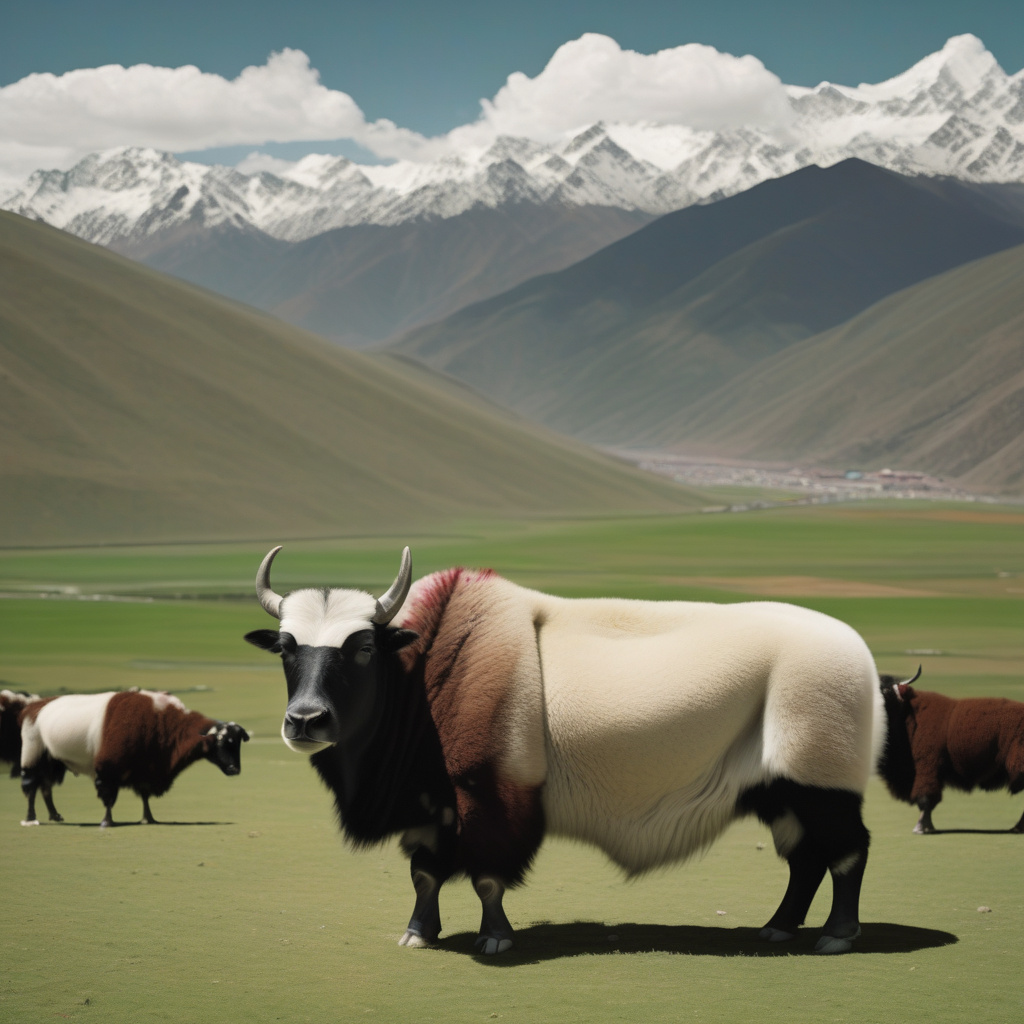Chinese scientists deliver world’s first cloned yak via cesarean section in Tibet
Chinese researchers have successfully delivered a cloned yak via caesarean section (C-section). Born on July 24, 2021, in the Tibet Autonomous Region, this groundbreaking achievement marks a significant milestone in the field of biotechnology and genetic engineering.
The cloned yak, named Kunlun, is the first of its kind in the world. With a genetic makeup identical to that of its donor, Kunlun represents a feat of scientific innovation and technological advancement. This achievement not only showcases China’s prowess in the field of cloning but also holds immense promise for the future of livestock breeding and conservation efforts.
The successful delivery of Kunlun was made possible through the meticulous work of a team of researchers from the Northwest Institute of Plateau Biology, Chinese Academy of Sciences. By employing state-of-the-art cloning techniques, including somatic cell nuclear transfer, the scientists were able to create a genetically identical copy of a superior yak with desirable traits such as high meat and milk production.
The birth of Kunlun carries significant implications for the agricultural sector, particularly in high-altitude regions like Tibet where yaks are a vital source of livelihood for local communities. Through cloning, farmers and breeders can potentially replicate top-performing yaks, thereby enhancing the overall productivity and quality of their herds.
Furthermore, the successful cloning of a yak opens up new possibilities for genetic preservation and biodiversity conservation. With climate change and environmental degradation posing threats to vulnerable species like the yak, cloning offers a ray of hope for ensuring their survival and resilience in the face of evolving challenges.
Beyond its practical applications, the birth of Kunlun also raises ethical considerations regarding the cloning of animals for commercial purposes. While the technology holds immense potential for improving agricultural practices and food security, it also raises questions about animal welfare, genetic diversity, and the long-term sustainability of cloning practices.
As China continues to lead the way in genetic research and biotechnological innovation, the successful delivery of the world’s first cloned yak serves as a testament to the country’s commitment to scientific excellence and technological advancement. By pushing the boundaries of what is possible in the field of cloning, Chinese scientists are paving the way for a future where genetic engineering plays a central role in shaping our world.
In conclusion, the birth of Kunlun, the world’s first cloned yak delivered via cesarean section in Tibet, represents a remarkable feat of scientific achievement with far-reaching implications for agriculture, conservation, and biotechnology. As we witness this historic moment in genetic engineering, it is essential to reflect on the opportunities and challenges that cloning presents for our society and the natural world.
#ClonedYak #BiotechnologicalInnovation #GeneticEngineering #AgriculturalAdvancements #ConservationEfforts












